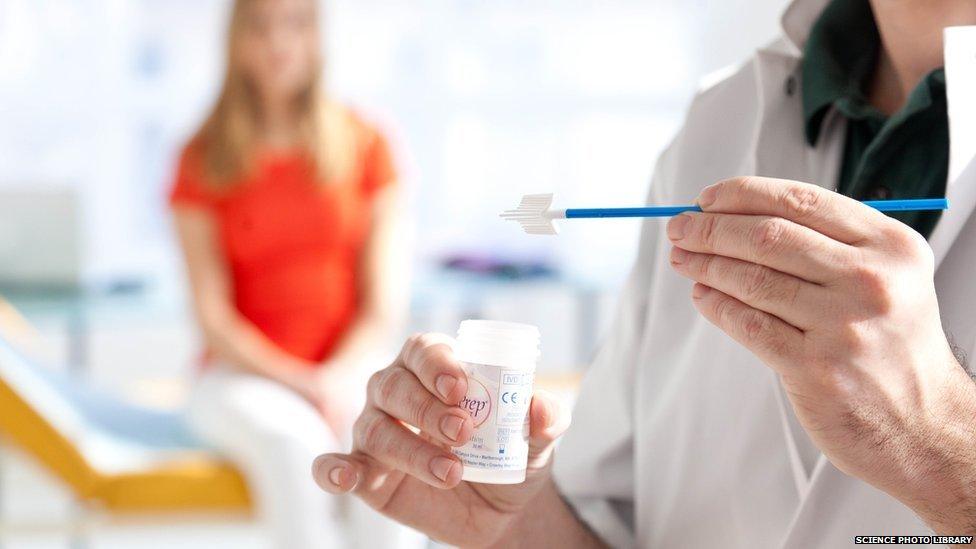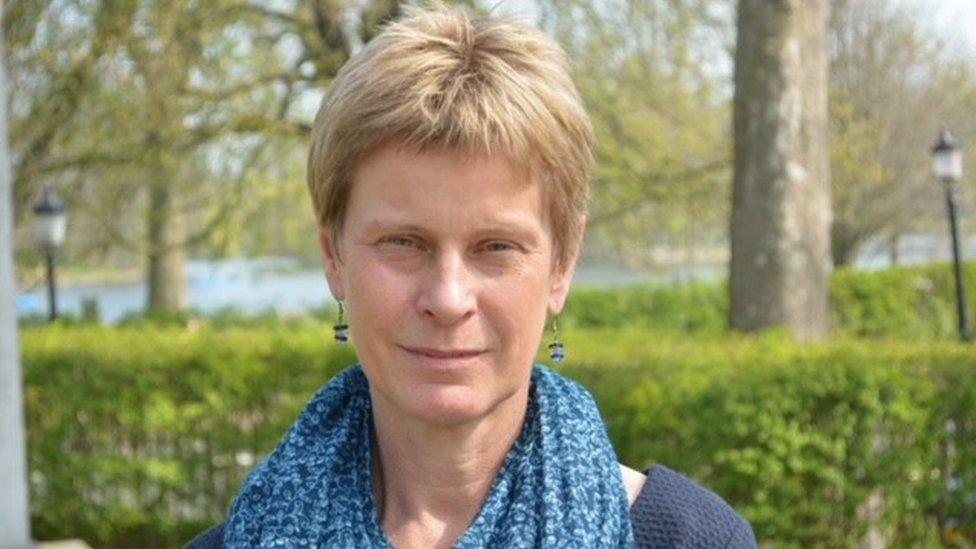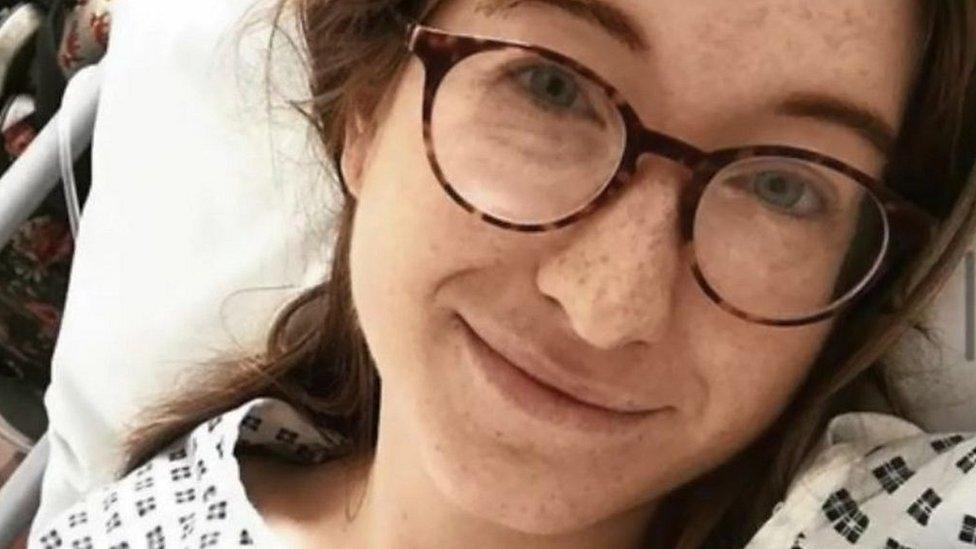Smear tests: Women waiting three times longer than they should for results
- Published

Smear tests, or cervical screening, checks the health of the cervix
Some women in NI are waiting more than three times longer than they should for smear test results.
BBC News NI's Evening Extra programme learned that all health trusts were breaching the target of 80% of samples being reported within four weeks.
The Department of Health (DoH) and Public Health Agency (PHA) said it was due to pressures on pathology services.
This included a shortage of available trained staff across the UK to carry out the screening, they said.
Smear tests, or cervical screening, check the health of the cervix.
The PHA says early detection and treatment can prevent eight out of 10 cases of cervical cancer.
In Northern Ireland, screening is offered to all women aged 25-64.
In the Belfast Health Trust, which also processes samples for the South Eastern Trust, the longest wait for smear test results is currently 12 weeks.
The trust said urgent samples were prioritised. This happens when cases are marked by GPs as urgent or suspicious.
The Northern Trust's longest wait is 13 weeks, in the Southern Trust it is 14 weeks while in the Western Trust it is eight weeks.
The number of samples received by labs so far this year has increased compared to last year.
Testing system differences
Unlike the rest of the UK, each sample in Northern Ireland has to be individually examined by a scientist.
In Great Britain, HPV primary screening is used. This tests the sample of cells taken at the appointment for a virus that can cause cervical cell changes to develop into cancer.
The DoH said it intended to implement this in Northern Ireland and the project involved significant work to reconfigure services.
It said it anticipated this would be partially completed in 2023, but that it depended on confirmation of budgets.
Barbara Roulston, public affairs manager for Cancer Research UK in Northern Ireland, said screening was very important as a cancer prevention measure.
"We estimate that cervical screening saves at least 2,000 lives a year across the UK," she added.
"So obviously getting those results as quickly as possible and then getting into the system if any surgery or intervention is required is really, really important."
Related topics
- Published19 January 2022

- Published16 June 2021

- Published13 September 2021
